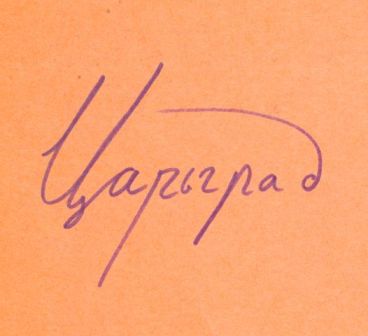‘rhythm and line and necessity’: John Riley and Czargrad
A new exhibition in the University Library Entrance Hall traces the composition of John Riley’s poem Czargrad, a seminal work in the alternative tradition of British poetry exemplified by the so-called ‘Cambridge School’ in the 1960s and 1970s.
Riley was born in Leeds in 1937 and was educated at Pembroke College, Cambridge, between 1958 and 1961. He took employment as a schoolteacher before leaving the profession to concentrate on literary work. He was killed in a street robbery in Leeds in 1978, aged 41. John Riley’s literary papers were generously donated to Cambridge University Library by his wife, Carol Riley Brown, in 2013.
Czargrad holds a central place in Riley’s work. Writing in PN review in 1981, Douglas Oliver called it Riley’s ‘broadest, most comprehensive poem’, evoking ‘an imagined, pristine, Eastern Orthodox city, shining a little with Byzantine gold, ambiguously holding out promise of true government, of true citizenship, and held in mind-sight by tremulous energies of artistic creativity.’ The poem, written in four parts in the years preceding Riley’s reception into the Russian Orthodox Church in 1977, uses incantatory language to interweave English and Eastern scenes with recurrent imagery of wings, water, flowers, leaves, domes and light.
The exhibition, ‘rhythm and line and necessity’: John Riley and Czargrad, puts on display notebooks and worksheets containing a selection of Riley’s manuscript and typescript drafts of the poem, together with printed items and correspondence relating to the work. It draws both on the John Riley Papers, MS Add. 10038; Riley’s letters to his friend Michael Grant in MS Add. 10000; and the Library’s printed book collections. The exhibition will run in the Entrance Hall until Saturday 15 March, and is complemented by an online virtual exhibition, which contains additional material and will be available indefinitely.

